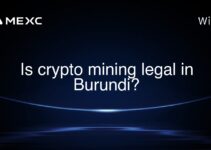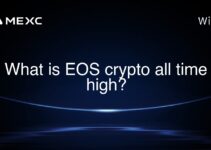Trading futures in the context of Islamic finance is a subject of debate among scholars, with opinions divided based on the nature and conditions of the futures contracts. Generally, conventional futures trading is not considered halal (permissible) in Islam because it involves significant elements of speculation, uncertainty (gharar), and often involves interest (riba), all of which are prohibited in Islamic finance. However, if structured in compliance with Shariah law, certain forms of futures trading can be permissible.
Importance of Halal Trading for Investors and Traders
For Muslim investors and traders, ensuring that their investment activities are halal is crucial not only for religious compliance but also for the ethical implications it holds. Engaging in halal trading practices allows them to maintain their religious integrity while participating in global financial markets. This adherence also opens up Islamic financial markets to a broader audience who are seeking ethical investment opportunities, thus expanding the market’s overall ecosystem.
Why Halal Compliance Matters
Halal compliance ensures that investments are made in activities that contribute positively to society, avoiding businesses that harm individuals or the environment, such as those involved in alcohol, tobacco, and gambling. This ethical investing approach aligns with the growing global trend towards socially responsible and sustainable investing.
Examples and Applications in 2025
By 2025, the landscape of Islamic finance has evolved with technology playing a pivotal role. Blockchain technology, for instance, has enabled the development of smart contracts that automatically ensure compliance with Shariah law. Platforms like MEXC have been instrumental in providing access to Shariah-compliant trading instruments, enhancing the inclusivity and accessibility of halal trading options.
One notable application is the use of Shariah-compliant futures contracts in agricultural commodities. These contracts specify clear terms and conditions about the quantity, quality, and delivery of the product, thus minimizing uncertainty and speculation. Another example is the growth of Islamic derivatives like ‘Salam’ (forward sales) and ‘Istisna’ (manufacturing contracts), which are structured to comply with Islamic law and are used to hedge against price volatility in a halal manner.
Relevant Data and Statistics
As of 2025, the Islamic finance industry has grown to exceed $3 trillion in assets globally, with a significant portion being attributed to Shariah-compliant trading instruments. Studies indicate that the demand for ethical and religious-compliant products has been a major driver of this growth. For instance, a survey conducted in 2024 showed that 70% of Muslim investors prefer investing in financial products that are compliant with Islamic law. Additionally, the introduction of blockchain in Islamic finance has reduced the cost of compliance by approximately 30%, making it more accessible and efficient.
Conclusion and Key Takeaways
While traditional futures trading is generally not considered halal, there are specific conditions under which futures contracts can be structured to comply with Islamic finance principles. The key elements to consider include the avoidance of excessive uncertainty, speculation, and interest. Innovations in financial technology, particularly blockchain, have played a crucial role in ensuring compliance and transparency in Shariah-compliant futures trading.
Platforms like MEXC, which support the development and accessibility of halal trading options, are vital for the integration of Islamic principles in modern financial practices. As the demand for ethical and religious-compliant investment options grows, the role of such platforms becomes increasingly significant in shaping an inclusive financial environment.
In conclusion, the evolution of Islamic finance continues to provide diverse opportunities for Muslim investors to engage in the global markets while adhering to their religious and ethical values. The ongoing advancements in technology and regulatory frameworks are expected to further enhance the accessibility and efficiency of halal trading practices worldwide.
Join MEXC and Get up to $10,000 Bonus!



